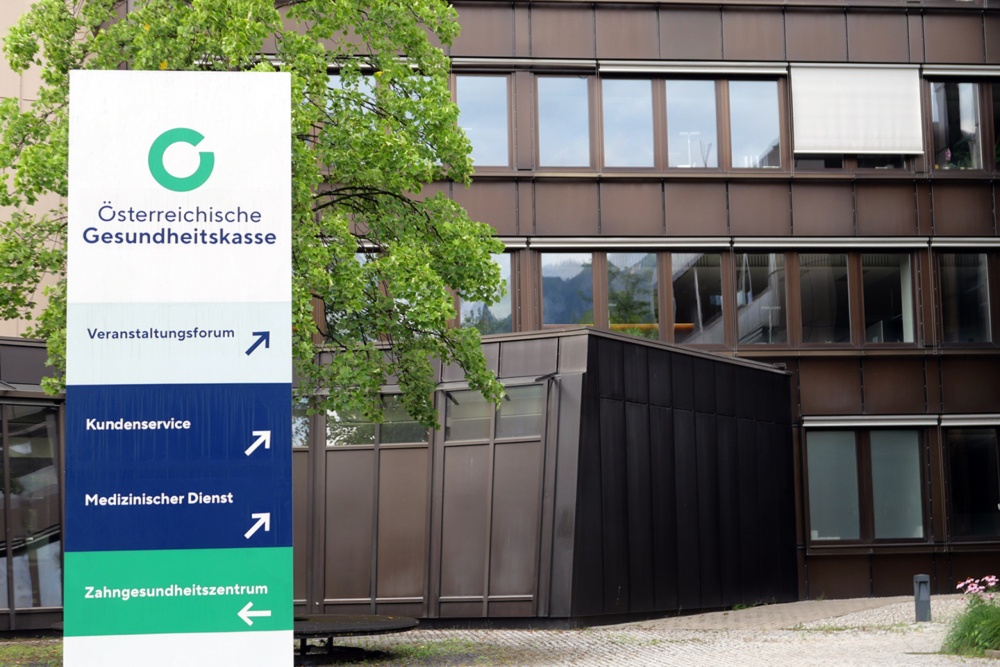Studying abroad in Austria is a dream for many students. The country is home to top-ranked universities, rich cultural heritage, and an excellent quality of life. One of Austria’s strongest assets is its healthcare system, which is ranked among the best in the world. Health insurance for international students in Austria is not just a formality; it is a legal requirement for obtaining a student visa or residence permit.
This guide explains everything you need to know about health insurance for international students in Austria, including coverage requirements, public and private insurance options, application processes, costs, and practical tips for accessing healthcare.

Table of Contents
Why Do International Students Need Health Insurance in Austria?
Austria boasts one of the world’s best healthcare systems, ranked 9th by the World Health Organization. The country operates on a model that guarantees equitable access for all residents, with 99% of the population covered by medical insurance. Austria operates on a compulsory health insurance system meaning every resident, including international students must be insured. Austrian law mandates that every international student must have valid health and accident insurance for the entire duration of their studies to obtain a residence permit or visa. Having insurance ensures you can access medical treatment when you need it, from routine check-ups to emergency care.
Without proper insurance coverage, you risk having your visa application rejected or facing significant financial burdens if medical emergencies arise during your stay. The Austrian healthcare system expects cash payments for out-of-pocket expenses from uninsured individuals, and medical bills can quickly amount to hundreds or even thousands of euros.
In addition to providing peace of mind, valid health insurance is:
- Mandatory for visa and residence permits: Without proof of coverage, your visa application will be rejected.
- Required by universities: Enrollment usually requires proof of valid health insurance.
- Essential for everyday life: From doctor’s visits to prescription medication, you’ll need insurance to avoid high out-of-pocket costs.

Coverage Requirements for Students Visa Applications and Residents Permits
When applying for a visa or residence permit in Austria, you must show proof of adequate health insurance. The requirements vary depending on the length of your stay:
- Stays up to 3 months (Visa C – Schengen Visa):
Students must have private international travel health insurance with at least €30,000 coverage for medical treatment and repatriation. - Stays up to 6 months (Visa D – National Visa):
Private travel health insurance with a minimum of €30,000 coverage is also required. - Stays longer than 6 months (Residence Permit – Student / Aufenthaltsbewilligung Studierender):
Students must enroll in Austrian public health insurance (ÖGK) or have equivalent private insurance that meets Austria’s “all-risks” standard.
Non-EU/EEA students must secure health insurance that corresponds to the standard of the Austrian public system. The policy must include:
- Minimum coverage of €30,000
- No waiting periods for coverage
- No deductibles or cost caps
- Direct billing arrangements (insurance pays providers directly)
- Repatriation and medical evacuation coverage
- A formal “To Whom It May Concern” letter from the insurer confirming these details
This documentation is mandatory for submission to foreign authorities (MA35), embassies, consulates, and border stations when applying for your residence permit.
Tip: Even if you plan to switch to Austrian public health insurance later, you must first have private insurance to apply for your visa and to cover you until you are enrolled in the national system.
Understanding Your Insurance Options
International students in Austria typically have two main pathways for health insurance coverage:
Public vs. Private Health Insurance for Students
International students in Austria generally have two options: public health insurance or private insurance.
1. Public Health Insurance (ÖGK – Österreichische Gesundheitskasse)
Most long-term students enroll in Austrian public health insurance system, managed by ÖGK.
Key features:
Comprehensive coverage: Includes
- Doctor visits and specialist consultations
- Hospital stays and treatments
- Prescribed medications
- Dental treatments (basic and analgesic)
- Preventive check-ups and vaccinations
- Medical aids (bandages, hearing aids, wheelchairs)
- Mother and child health programs
Affordable student premiums:
- Standard student rate: Around €70/month (as of recent updates; historically ~€51.55/month).
- Reduced premiums may apply if your income is below a set threshold.
E-Card: Once enrolled, students receive an e-card, which must be presented at healthcare facilities.
Eligibility Requirements for ÖGK:
- Enrollment as a “regular student” at an accredited Austrian higher education institution (universities of applied sciences, and academies). Preparatory course students may also qualify
- Residence in Austria
- Not exceeding the maximum study period plus four tolerance semesters
- Annual income from employment not exceeding €15,000
- Submission of valid confirmation of studies annually
Important Limitations:
- Coverage begins only after 6 months of premium payments
- Does not cover cash sickness or maternity benefits
- Excludes repatriation, medical evacuation, and liability coverage
- Requires annual renewal with proof of continued student status
Public insurance is the most popular choice for degree-seeking students staying more than 6 months.

2. Private International Health Insurance
Private health insurance is suitable for:
- Non-EU/EEA students requiring visa compliance
- Students staying in Austria for less than 6 months (visa C or visa D holders).
- Those not yet eligible for ÖGK coverage due to income, duration, or enrollment type
- Students who want additional coverage beyond ÖGK’s basic benefits
Recommended providers include Swisscare, Care Austria, and international options like StudentSecure, Cigna Global, and AXA. These plans typically start from €51-€66 per month and offer:
- Visa-compliant coverage meeting §11 NAG requirements
- Repatriation and medical evacuation
- Emergency dental treatment
- Third-party liability insurance
- Search and rescue services
- Accident and disability benefits
- Often include higher coverage limits (€30,000 minimum required for visa)
Key features:
- Meets visa requirements: Must provide at least €30,000 coverage for medical treatment and repatriation.
- Flexible plans: Different insurers offer packages for travel, accident, hospitalization, and supplementary benefits.
- Popular providers: Care Austria, FeelSafe, Swisscare, UNIQA, AXA, Cigna, ISI, and others.
- Costs: Start as low as €0.54/day for basic plans but can go up depending on coverage level.
Many students begin with private insurance for visa purposes and later switch to public insurance once eligible.
Cost Comparison between Public vs. Private Health Insurance for International Students in Austria
| Feature | Public Health Insurance (ÖGK) | Private Health Insurance (Various Providers e.g., Swisscare, FeelSafe, UNIQA) |
| Eligibility | Regular students at Austrian universities, universities of applied sciences, or preparatory courses | Short-term students (visa C/D), non-eligible long-term students, or as supplementary cover |
| Coverage | Comprehensive: doctor visits, specialists, hospital stays, medication, dental, preventive care, medical aids | Depends on provider; usually covers medical treatment, hospitalization, repatriation, ambulance, liability, and travel benefits |
| Premium Costs | ~€64/month for students (reduced rate); ~€369/month if not eligible for student rate | From |
| E-Card Access | Yes – required for doctor visits and pharmacy services | No e-card; you pay upfront and apply for reimbursement (if applicable) |
| Visa/Residence Compliance | Fully compliant for residence permit (6+ months stay) | Compliant for visa C/D (up to 6 months); must meet €30,000 coverage minimum |
| Duration | Continuous as long as you remain enrolled and meet conditions | Flexible (can be purchased monthly or yearly); some contracts require minimum 6 months |
| Exclusions | No cash sickness or maternity benefits | Varies; may exclude pre-existing conditions or long-term chronic illnesses |
| Repatriation | Not included | Typically included |
| Best For | Long-term degree students (6+ months) | Short-term exchange students, new arrivals before public insurance enrollment, or those needing extra coverage |
Health Insurance for EU/EEA and Bilateral Agreement Countries
Not all international students have the same requirements. Coverage depends on nationality and international agreements.
EU/EEA Nationals
- Students from the EU/EEA can apply for a European Health Insurance Card (EHIC) in their home country.
- With the EHIC, they receive the same benefits as Austrian nationals under public insurance.
- However, the EHIC does not cover travel-related protection (e.g., repatriation, search and rescue). A private supplementary plan is strongly recommended.
Bilateral Agreement Countries
Austria has agreements with certain non-EU countries, allowing their students to access public insurance under the same conditions as Austrian nationals. These include:
- Bosnia & Herzegovina
- Croatia
- Macedonia
- Montenegro
- Serbia
- Turkey
Students from these countries must request an A3 form from their national health insurance provider, which is then exchanged for Austrian coverage documents upon arrival.
What Does Student Health Insurance in Austria Cover?
Both public and private plans must meet the Austrian “all-risks” requirement. Depending on your insurance type, coverage may include:
- General and specialist doctor visits
- Hospital stays (inpatient care)
- Prescription medication
- Dental treatments (basic and prosthetic work)
- Preventive check-ups and vaccinations
- Medical aids (hearing aids, wheelchairs, bandages)
- Mother and child health programs

Additional private insurance benefits may include:
- Repatriation to home country
- Air, sea, or ground ambulance services
- Search and rescue
- Accidental death and disability benefits
- Third-party liability coverage
Costs of Student Health Insurance in Austria
Here’s a breakdown of typical costs:
- Public Insurance (ÖGK):
- ~€70 per month for eligible students
- Reduced premium if income is under a specific threshold
- Standard premium (if not eligible for student discount): ~€369/month
- Private Insurance:
- Starts at around €0.54/day (~€16/month) for basic travel coverage
- More comprehensive plans range between €50–€200/month depending on provider and benefits
👉 While public insurance offers the best long-term value, private insurance is often necessary for short stays or as a complement to public coverage.
Step-by-Step Enrollment Process for Health Insurance as an International Student
For Private Insurance (Visa Application):
Before Arrival in Austria
- Research Providers: Compare options from providers like Swisscare, Care Austria, FeelSafe, or StudentSecure based on your needs and budget
- Ensure your policy clearly states minimum €30,000 coverage and “all-risks” protection.
- Arrange private health insurance that meets visa requirements.
- Apply Online: Complete the application form on your chosen provider’s website
- Receive Documentation: Obtain your insurance policy and mandatory “To Whom It May Concern” letter via email (typically within 2 working days)
- Submit with Visa Application: Include these documents with your residence permit application
- Keep digital and physical copies of your insurance certificate for visa and university purposes
For Public Insurance (ÖGK) After Arrival (Long-Term Students):
- Step 1: Apply for enrollment at ÖGK (Austrian public health insurance).
- Prepare your confirmation of admission/enrollment, passport, and registration form (Meldebestätigung) and submit at your university.
- Provide income details if applying for the reduced student premium.
- Visit ÖGK Office: Locate your nearest Österreichische Gesundheitskasse service point
- Submit Application: Provide all required documents and complete the application process
- Pay Initial Premium: Set up payment for your monthly contributions
- Receive E-Card: After processing, you’ll receive your electronic insurance card, which you must present at healthcare facilities
- Maintain Coverage: Submit proof of continued student status each academic year to maintain your eligibility
Practical Steps for Accessing Healthcare in Austria
Once insured, here’s how to use the healthcare system effectively:
- Keep your e-card (for ÖGK members) handy – you’ll need it for doctor’s visits, hospitals, and pharmacies.
- Choose your general practitioner (Hausarzt) – they are your first point of contact and can refer you to specialists.
- Pharmacies (Apotheke) – open during working hours; emergency pharmacies are available 24/7 in major cities.
- Emergency care – call 144 for medical emergencies or visit the nearest hospital.
- Annual renewal – update your student and insurance status each academic year to avoid interruptions.

Advantages of Austria’s Student Health Insurance System
- High quality healthcare: Ranked among the best globally by the WHO.
- Extensive coverage: From routine check-ups to specialized treatments.
- Affordability: Public student insurance is much cheaper compared to many other EU countries.
- Security: Valid insurance ensures compliance with visa/residence laws.
- Accessibility: 99% of Austria’s residents are insured, ensuring equitable access.
Tips for International Students
- Apply early: Start arranging your insurance at least 2–3 months before your departure.
- Keep backups: Always carry a digital copy of your insurance certificate.
- Know the exclusions: Some treatments (like cosmetic surgery or non-prescription medications) may not be covered.
- Get supplementary insurance if you want extra benefits like private hospital rooms or repatriation.
- Check renewal deadlines each year to avoid losing coverage.
Practical Steps for Accessing Healthcare Services
Once you’re insured, follow these steps to access medical care:
- Find a doctor: Look for physicians displaying the “Alle Kassen” sign, indicating they accept public insurance patients
- Present Your E-Card: Always bring your insurance card to appointments
- Understand Copayments: Some services may require small out-of-pocket fees (€5-10 for prescriptions)
- For Emergencies: Go directly to any hospital emergency room (Notfall)
- Keep Records: Maintain documentation of all treatments and payments for potential reimbursement claims
- Renew Annually: Remember to submit your continued student confirmation to ÖGK each year
Conclusion
Health insurance is an essential part of studying in Austria both for legal reasons and for your own wellbeing. Whether you choose public student insurance with ÖGK or a private provider like Care Austria, Swisscare, or UNIQA, the key is ensuring your policy meets Austrian requirements and provides comprehensive coverage.
Securing proper health insurance is not just a legal requirement for studying in Austria, it’s an essential investment in your health, safety, and academic success. By understanding the differences between public and private insurance options, preparing the necessary documentation, and following the proper enrollment procedures, you can ensure compliance with Austrian regulations while protecting yourself from potential medical expenses. Read more on https://www.travellingscholars.com/health
Remember that while the process may seem complex initially, Austria’s efficient healthcare system and numerous insurance options make it manageable for international students. With the right coverage in place, you can focus on what matters most: your education and experience in one of Europe’s most beautiful and culturally rich countries.
Whether you opt for the public ÖGK system or a private international plan, taking the time to make an informed decision about your health insurance will provide peace of mind throughout your academic journey in Austria.


